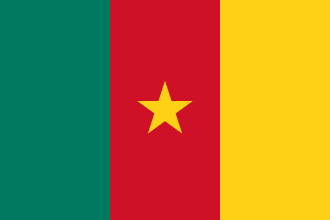Cameroon’s Gross Domestic Product (GDP) grew by 3.5% in 2024, surpassing the 3.2% recorded the previous year, while inflation dropped significantly from 7.4% to 4.5%, easing the burden on households and increasing the purchasing power of thousands of families across the country. These indicators reflect an economy that is not only making macroeconomic progress but also delivering tangible benefits to people’s everyday lives.
This growth was driven mainly by rising cocoa prices, on which thousands of smallholder farmers depend, along with improved cotton yields and continued expansion in energy supply. In rural areas, these improvements have translated into higher incomes for producers, more employment opportunities, and better living conditions.
Ruanda combina la innovación juvenil y la economía circular para construir una nación resiliente
At the same time, a reduction in the current account deficit — from 4.1% to 3.4% of GDP — signals greater external stability, while a slight increase in the fiscal deficit to 1.5% is attributed to increased public spending on key sectors such as infrastructure, energy, and social services. Public debt, although slightly higher (from 46.1% to 46.8% of GDP), is still considered sustainable. Projections for the 2025–2028 period are equally promising: economic growth is expected to average 3.9% per year, and inflation may fall to 3%, aligning with the CEMAC convergence criteria. This outlook opens the door to greater social inclusion, poverty reduction, and youth employment generation, especially through public investment in productive sectors.
A key aspect of this economic trajectory is the strategic role of Cameroon’s natural capital. With one of the richest ecosystems on the African continent, the country is integrating its environmental wealth into its development model. Sectors such as ecotourism, non-timber forest products, and traditional medicine based on local flora are being recognized as viable sources of sustainable income and community-based employment.
However, the country faces the challenge of curbing forest depletion. Between 2010 and 2020, the rate of forest conversion for agricultural use multiplied fivefold compared to the previous decade. Protecting these ecosystems is crucial not only from an environmental standpoint but also as an economic and social foundation for the well-being of future generations.
Cameroon has shown that it is possible to combine economic growth, social impact, and ecological vision. With well-targeted public policies, the country is laying the groundwork for a fairer, more inclusive, and sustainable future, reaffirming its commitment to becoming a leading emerging economy in Central Africa by 2035.









